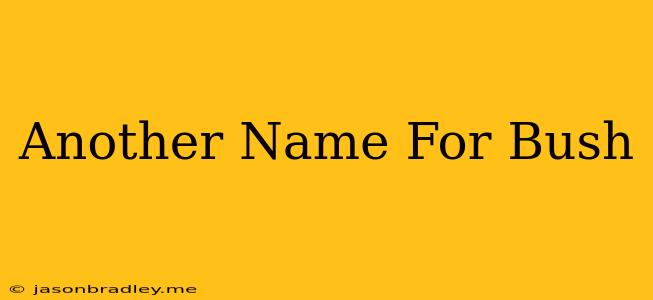A Whole World of Names for "Bush"
"Bush" is a simple word that can describe a variety of plant life, from dense, tangled thickets to small, shrub-like plants. However, depending on the context and region, many other names can be used to paint a more vivid picture of what you mean.
Here are some alternative names for "bush," grouped by their connotations:
Dense and Wild:
- Thicket: A dense growth of shrubs or small trees, often impenetrable.
- Bramble: A thorny bush, particularly one with blackberry or raspberry bushes.
- Scrub: A dense growth of low-lying, often thorny vegetation, typically found in dry or degraded areas.
- Undergrowth: Vegetation that grows beneath taller trees or shrubs.
- Jungle: A dense, tropical forest with a tangled understory.
Smaller and Defined:
- Shrub: A woody plant that is generally shorter than a tree, often with multiple stems.
- Bushy: Describing a plant with a dense, rounded shape.
- Copse: A small group of trees, often clustered together and forming a dense thicket.
- Spinney: A small wood or thicket, often containing thorny bushes.
- Swale: A low-lying, marshy area often with dense vegetation.
Specific Types of Bushes:
- Hedge: A row of closely planted shrubs or trees, often used as a boundary.
- Huckleberry: A type of bush that produces berries, often found in forests.
- Willow: A type of bush with long, slender branches and weeping leaves.
- Rosebush: A bush that produces roses.
- Dogwood: A type of bush known for its beautiful, colorful flowers.
The best alternative to "bush" depends on the specific type of vegetation you're describing and the context of your writing. Using a more specific word can make your writing more vivid and engaging.
